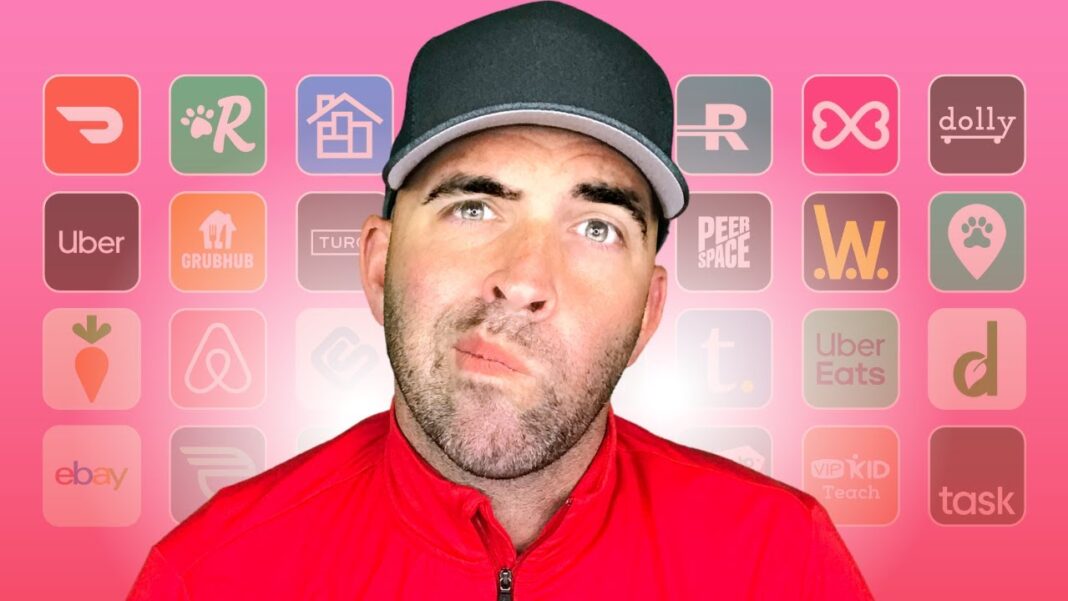Rep. Kevin Kiley: Mr. Speaker, I rise today to lament the death of comedy in California. The death of satire in California. Or, more seriously, to lament a serious blow that has been struck against freedom of speech and a healthy democratic process, in California.
And that is, because the California legislature has passed and Governor Gavin Newsom has signed a law explicitly designed to outlaw political parodies. We don’t need to speculate about this being the purpose of this law because the governor said so directly.
Several weeks ago, a parody video of Kamala Harris began circulating on social media. Governor Newsom reposted it and he said, quote, this should be illegal. I’ll be signing a bill in a matter of weeks to make sure it is. And this week, he made good on that promise. The governor again reposted the parody and said, quote, I just signed a bill to make this illegal in the state of California.
So sort of on its face, a classic authoritarian move. A person in power, sees speech he doesn’t like, sees speech that threatens his power. And so he uses that power, uses whatever tools he has at his disposal, to silence those, who would dare speak against him, to make them go away. That’s by his own admission, in his own words. What he has done.
Now, I will say there are legitimate issues when it comes to AI deepfake, voice cloning, generative video, and other tools that may be maliciously wielded to confuse voters and corrupt the political process. And there is room for, and perhaps even a need for, regulation designed to assure that these tools are not abused.
But that’s not what Newsom is doing. By his own acknowledgment, what he is doing is banning parody, and parody and satire have been central to American political discourse throughout our history. From the founding era, with satirist lampooning King George, through the works of Mark Twain through the advent of television, Saturday Night Live, through the present day with The Onion, the Babylon Bee, and all matter of manner of parody and satire, on social media.
It has thrived as a way for artists, comedians and the public at large to humble those who have become too powerful and to convey truths in a particularly compelling way.
Not only that, but satire and parody are clearly protected by the First Amendment of the Constitution. The Supreme Court has long held that parodies of public figures are protected, even if they are, quote, outrageous.
And the court has long held that any satirical statement is protected so long as it cannot reasonably be interpreted as stating actual facts.
So, in short, if a reasonable person could discern that something is a parody, then it’s protected by the First Amendment.
So the question when evaluating this new law would be, is it stepping over that line?
And we have a very clear test case in the Kamala Harris video that, in the governor’s own acknowledgment was the inspiration for the law, it’s exactly the sort of thing that the law was designed to stamp out.
So let’s just look at a few lines from this Kamala Harris video. And see whether a reasonable person would actually believe that it’s Kamala Harris.
The first line of the video is this I, Kamala Harris, am your Democrat candidate for president because Joe Biden finally exposed his senility at the debate. Now, what a reasonable person think that Kamala Harris said that when they see this video, that she actually made that statement.
The video goes on. It says if you criticize anything I say, you’re both sexist and racist. Would a reasonable person believe that was actually Kamala Harris saying that in that video?
Other examples. It goes on. I may not know the first thing about running the country, but remember, that’s a good thing if you’re a deep state puppet. Would a reasonable person believe that Kamala Harris actually said that?
It goes on. Joe Biden taught me, rule number one, carefully hide your total incompetence. Would a reasonable person believe that this is actually Kamala Harris saying, rule number one, carefully hide your total incompetence?
The video goes on. It says my work on the border was, quote, catastrophic. Would a reasonable person think you said that, she said that?
Now one of the keys to effective satire. And you can judge for yourself whether this is effective or not, is that it actually does illuminate a deeper underlying truth. So one might argue, I would argue that Kamala Harris’s performance as borders Czar was in fact catastrophic. But a reasonable person would not actually believe that she is saying that herself in this video.
So Gavin Newsom, in order to maintain that consistent with the First Amendment, he can eliminate this video from our public discourse, would have to somehow argue that he thinks the public, a reasonable member of the public, would actually think that Kamala Harris would say those things.
It makes you wonder about the regard that Mr. Newsom has for the public in California and across the country.
But the better explanation for his behavior is just that he doesn’t have any regard for the First Amendment at all. The courts have time after time struck down measures that he has signed on First Amendment grounds. It just happened again a couple weeks ago.
It happened, not that long ago with respect to a law that he signed that sought to punish people for supposedly spreading Covid misinformation. The legislature and Newsom had to repeal their own law after the court weighed in, on First Amendment grounds.
But this highlights a broader, very concerning tendency, not just in California, but across the country, where we have this brewing crisis of freedom of speech, which in many ways started at colleges and universities and then expanded to certain social media platforms and then became intertwined with the government.
We got, a acknowledgment of this recently from Mark Zuckerberg, CEO of Facebook, Meta, who said that he was indeed pressured by the Biden administration to censor content on his platform. And he acknowledged that Facebook was wrong to give in to that pressure.
We’re also seeing elsewhere in the world some, alarming, regression when it comes to protections for freedom of speech.
And this has been throughout U.S. history. One of the things that has set our country apart, is we have always had ironclad, or at least striven to have ironclad protections for freedom of speech. It’s one of the things that’s propelling progress of all kinds in the, in the history of our country. I would argue that there is perhaps no greater threat to democracy than the suppression of freedom of speech.
So the assault on free speech led by Gavin Newsom and the Biden administration is cause for great alarm, by all Americans.
Fortunately, I think there are some reasons to believe that the tide is starting to turn. Of course, the social media platform X has become a leader in protecting freedom of speech. After we’ve learned about prior efforts at that platform and others, working and at times with the government.
We have seen, of course, the Zuckerberg letter that I just mentioned, where, Facebook is committing to be more mindful and respectful of free speech principles in the future. And just yesterday, this House passed my Free Speech on Campus Act, which is designed to restore the importance of freedom of speech on our college campuses as a foundational campus value.
So I would urge the Senate now to pass that same measure and my colleagues on both sides of the aisle, to join in whatever efforts we can to end this, the assaults on free speech we have seen in this country and return to the founding principles that have been so central to our country’s prosperity and progress.







